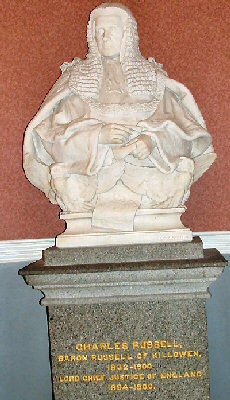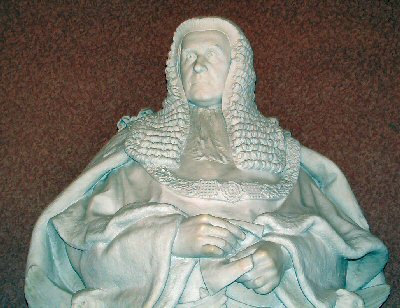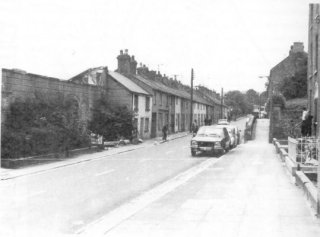It was a famous Newry man, Charles Russell who exposed in court the British-Government inspired calumny against the great Irish Nationalist leader of the late nineteenth century Charles Stuart Parnell.
To add weight to the lie that Parnell was in league with the violent revolutionary Republicans of the period, government spies fed misinformation to the august
Though Russell soon proved Parnell innocent of the trumped-up charges, the personal attacks continued and succeeded in causing permanent political (and indeed, physical and mental) d

Russell we know, later became Lord Chief Justice of
One of the main pieces of evidence against Charles Stuart Parnell – a Protestant Irish landlord, by the way! – was a letter allegedly written by Parnell himself which expresses total support for the murder of the English Under-Secretary of Ireland in Phoenix Park. Parnell, for his part, made a public statement to the effect that the letter was a forgery, and indeed he named the forger, one Richard Pigott.
Pigott was charged and Parnell was represented by the leading barrister of his day, Newry man Charles Russell. Russell had looked through all of the apparently forged letters very thoroughly. He had paid particular attention to any idiosyncratic spelling mistakes, the most notable of which was the misspelling of the word ‘hesitancy’.
At first the trial went well for Pigott who had been very careful to disguise his handwriting style. Two days into cross-examination Pigott was brimming with over-confidence which Russell, an experienced observer of men, detected immediately.
Russell ordered a piece of paper to be handed up to Pigott. He asked him to write some words down on it. The inference was that a sample of handwriting was required and the defendant knew he had well-disguised his hand in the forgeries and could now freely write with his own style.
First, as requested, Pigott spelt out with his hand, the word ‘livelihood’. Then he was asked to write the word ‘likelihood’. A little later Pigott was asked to sign his name. Then, almost as an afterthought, Russell asked him to write the word ‘hesitancy’.

With no hesitancy at all, Pigott took up his pen and wrote ‘hesitency’. This was the spelling frequently repeated by Pigott in the forged letters. He was doomed.
Early the following morning the disgraced Pigott fled to
Within a generation, peaceful Irish Nationalism was overshadowed by militant Republicanism. In 1922 the
